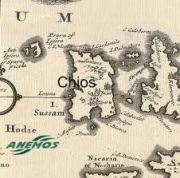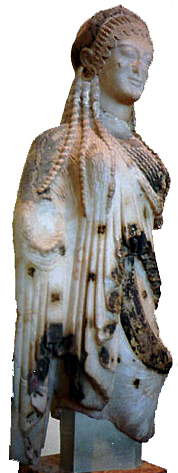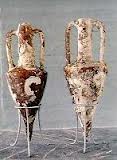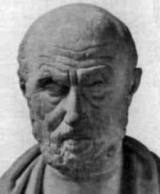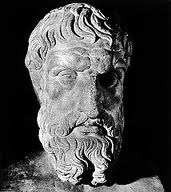Difference between revisions of "Chios"
Ion aigialis (Talk | contribs) |
|||
| (One intermediate revision by one other user not shown) | |||
| Line 1: | Line 1: | ||
| − | |||
| − | |||
Ancient Chios | Ancient Chios | ||
| Line 37: | Line 35: | ||
| + | [[File:.jpg|thumb|]] | ||
| + | |||
| + | [[File:.jpg|thumb|]] | ||
| + | |||
| + | [[File:.jpg|thumb|]] | ||
| + | |||
| + | [[File:.jpg|thumb|]] | ||
| + | |||
| + | [[File:.jpg|thumb|]] | ||
| + | |||
| + | [[File:.jpg|thumb|]] | ||
| + | |||
| + | [[File:.jpg|thumb|]] | ||
| + | [[File:.jpg|thumb|]] | ||
Latest revision as of 23:14, 24 March 2013
Ancient Chios
Circa 1000BC the first Greeks, Ionians from Boeotia, Attica and the Eastern Peloponnese gradually colonized the islands of Chios and Samos along with 10 cities on Asia Minor, founding the Ionian Dodecapolis. Its center was the sanctuary of Panionion, near Mykale, which eventually, from a religious and festive synod, acquired the form of Koinon (federation of States). The Ionians quickly dispersed throughout the island, and settlements are mentioned in the literary sources, in the northern and southern Chios, including Kardamyle, Kavkas, Koila, Volissos, Notion, Phana, Poseidon, Lefkonion inter al. Chios flourished and became great naval power. Chian coins have been found throughout the Mediterranean Sea. In addition to the unique mastic gum, the Chian wine - Ariousios Oinos - was also very famous and also a source of wealth and glory, because it was one of the most expensive wines in ancient Greece.
By the 6th century BC Chios was a major city with estimated population of 60-80.000 residents, not including slaves. During the early years of Ionian settlement, the regime was monarchical, for tradition preserves the names of its kings (Hector, Hippoclos etc.), and on the acropolis of Chios a Megaron (Palace) has been excavated, probably the ruler’s residence. Information gleaned from the 6th century BC inscription relating to the body politic suggests that this was a moderate oligarchy or democracy in its infancy. For the first time in the Hellenic world, the term "parliament" was used. This comprised two councils, one democratic with elected and representative members from each tribe (phyle), and one aristocratic with selected members. Perhaps from the middle of the 7th century BC Chians had established a typical form of Greek city-state enjoying political stability, wealth and prosperity.
Patron deity of Chians was Zeus Pelinnaios, who was worshiped in the most revered sanctuary on Mount Pelinnaios, which, according to an inscription, was in the care of the lineage of Klytidoi. The official goddess was Athena Polias, who had a temple in the city of Chios. The sanctuary of Apollo at Phana was one of the most famous in the ancient world. All this prosperity came to an end at 493 BC when Chios was conquered by Persians and suffered a terrible disaster. Forming a solid line, side by side, the Persians advanced down the island, from the north southwards. "they marched across the entire island, hunting men down" narrates Herodotos. They burned the sanctuaries, destroyed the vineyards and sent droves of captives to the Persian king.
After the battle of Mykale (479 BC) Chians rebelled and became independent and autonomous and joined the Athenian League. Half a century of peace and development ensued, only to be interrupted by the Peloponnesian War. From the beginning of the war up to the conquer of Greece by Alexander the Great Chios suffered political instability. In 332 BC he sent a letter to the Chians in which he ordered the restoration of the democratic body politic, the drafting of new laws, and amendment of existing legislation in accordance with the new regime. he also obliged Chians to submit their lows to him for approval, imposed the participation of 20 triremes in his fleet and the setting up of a Macedonian garrison on the island. The weakened role of the independent city-state at this time is all too apparent. After Alexander’s death Chios became part of the Macedonian State and later passed under the influence of Ptolemy I, the Selefkides and the kings of Pergamon.
When Romans arrived at Greece the Chians allied with them and helped the to predominate over the Selefkides of Syria (190BC). So they obtained great privileges. During Imperial times the island was visited by Tiberius, and possibly Nero, and in numerous inscriptions there are honorably decrees to their rules and benefactors. But the Roman gradually stripped Chios of its work of art, and the destruction was completed by a series of catastrophic earthquakes. Finally, in 70 AD, Vespasian abolished the autonomy of Chios, and economic decline set in towards the end of the 1st century AD, though some activities, such as production of the island’s excellent wine, still continued.
http://www.chiosonline.gr/ancienttimes.asp
